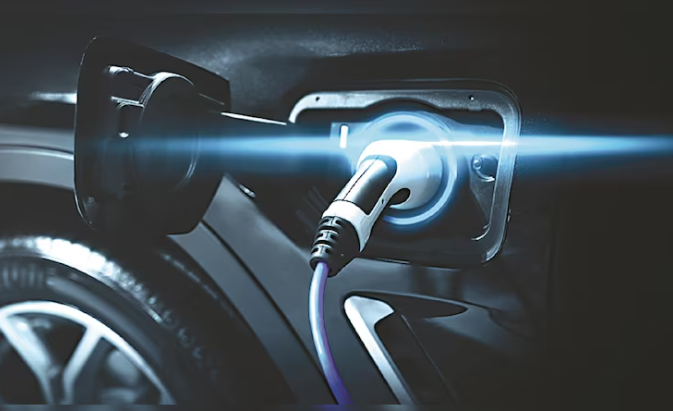CHARGING UP (GS Paper 3 – Science & Technology)

Context:
- In March, the Union government approved a new e-vehicle policy aimed at facilitating the entry of global EV manufacturers into India.
- The policy entails lowering duties for EV imports and setting clear localization targets to boost domestic value addition.
- This move is expected to garner significant interest from international players, with reports indicating Tesla Motors’ intention to scout for locations for a multi-billion-dollar electric car plant in India.
Opportunities for Global EV Manufacturers:
- Access to India’s vast and rapidly expanding market, currently the third-largest auto market globally, presents a lucrative opportunity for EV manufacturers like Tesla.
- While the EV market in India is still nascent, it is growing steadily, with sales surpassing 1.5 million in 2023, particularly dominated by two-wheelers and three-wheelers.
- The government’s ambition to increase the share of electric vehicles to 30 percent by 2030 further underscores the potential for growth in this sector.
- Additionally, the possibility of Tesla manufacturing a more affordable car in India holds promise for both domestic consumption and export markets, aligning with the government’s Make in India initiative.
Impact on Make in India Initiative and Economic Growth:
- The entry of global manufacturers not only expands consumer choices but also brings in advanced technology and promotes competition in a sector traditionally dominated by domestic players.
- Moreover, it contributes to reducing carbon emissions and lessening the country’s dependence on oil imports.
- The potential establishment of Tesla’s manufacturing presence in India, following Apple’s recent expansion in the country, could significantly bolster the Make in India campaign and enhance India’s position as a manufacturing hub.
Challenges and Cautionary Measures:
- While the new policy presents opportunities, it’s crucial to closely monitor compliance with investment and localization criteria to prevent deviations that could compromise domestic value addition goals.
- Maintaining stringent targets is essential to ensure the long-term sustainability and effectiveness of the policy.
- Moreover, to accelerate the adoption of EVs, there needs to be a concerted effort to rapidly expand the charging infrastructure across the country.
Conclusion:
- The new e-vehicle policy marks a significant step towards attracting global EV manufacturers to India, presenting immense opportunities for economic growth, technological advancement, and environmental sustainability.
- However, to realize these benefits fully, it’s imperative to balance regulatory incentives with accountability measures and focus on developing robust infrastructure to support the widespread adoption of electric vehicles across the nation.


